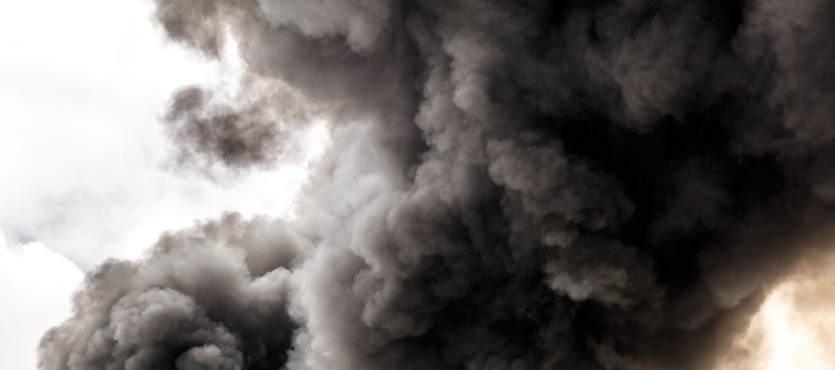Burn pit Defense Base Act benefit claims are independent from VA disability burn pit claims. But just like private military contractors overlap with regular servicemembers, the injury claims overlap as well. Just like the following conditions make VA disability benefits easier to obtain, they also make Defense Base Act benefits easier to obtain.
Under U.S. law, exposure to burn pit smoke presumptively causes the following conditions. A legal presumption is an assumption or inference about a fact that’s made in a court of law based on the existence of other facts. Essentially, this rule of evidence forces the court (or an administrative law judge) to assume a fact is true until evidence is presented to prove otherwise. More on that below.
Burn pits were widely used in Afghanistan, Iraq, and elsewhere in Southwest Asia. This waste disposal method is very cheap for the DoD. Instead of building waste disposal infrastructure, even at permanent bases, the DoD authorized the use of huge open-air burning trash pits that belched toxic smoke.
More than likely, the DoD believed that courts would take the same attitude toward burn pit injuries that they took with Gulf War Syndrome. For many years, that was the case. But the DoD did not count on the determined advocacy of a Defense Base Act lawyer at an administrative law judge hearing.
One such hearing in 2010 created a legal presumption in favor of burn pit injury claims. If the victim has one of the conditions listed below, the single presumption basically becomes a double presumption. That case is very hard to beat.
Asthma
Many people believe medication controls asthma, a common breathing disease. In many cases, that’s true. But in some cases, asthma is disabling. That is especially true if the victim has a pre-existing condition.
Asthma cases are a little tricky. Benefits are unavailable if the victim was diagnosed with asthma before deployment. However, the victim could have a non-asthma breathing condition, like allergies, that transforms regular asthma into a debilitating condition.
Chronic Bronchitis
Chronic bronchitis is a condition characterized by persistent inflammation and irritation of the bronchial tubes, leading to a cough that produces mucus for at least three months of the year for two or more consecutive years.
These claims often involve legal obstacles, since the victim must wait two years after coughing begins to file a claim. A variation of the delayed discovery rule usually applies in these cases. So, victims can file their claims two years after injury discovery, not two years after an initial diagnosis of a preliminary condition (coughing).
Chronic Obstructive Pulmonary Disease
COPD is closely related to chronic bronchitis. COPD is a serious lung disease that significantly impacts breathing and daily life. Early diagnosis, treatment, and lifestyle changes, particularly quitting smoking, are crucial for managing the condition and slowing its progression. The obvious problem with deployment-related COPD is that smoking didn’t substantially cause the illness.
With one leg of the three-legged treatment stool missing, medical bills climb, because treatment must be more aggressive. The Defense Base Act pays all reasonably necessary medical bills, even if these bills are higher than average.
Constrictive or Obliterative Bronchiolitis
This much more serious condition is a lung condition characterized by inflammation and scarring of the small airways (bronchioles). This inflammation leads to narrowing or blockage of the bronchioles, resulting in airflow obstruction and potentially requiring lung transplantation in severe cases.
Burn pit smoke contains a number of toxins, such as heavy metals and asbestos. These toxic particles burn the bronchioles, many of which are not much larger than the tip of a pencil. Doctors and patients have some major decisions to make, because the cure (a lung transplant) is almost as bad as the disease (CB). Regardless of the outcome, Defense Base Act benefits are available, possibly for a lifetime.
Emphysema
Emphysema is a chronic lung disease where the tiny air sacs in the lungs (alveoli) are damaged, making it difficult to breathe. This damage can cause the air sacs to break down, reducing the overall surface area of the lungs and hindering the exchange of oxygen and carbon dioxide. The most common cause is long-term exposure to toxic smoke, but other irritants and a genetic condition (alpha-1 antitrypsin deficiency) can also contribute.
The key to benefits is the difference between a substantial cause, like toxic smoke, and a contributing cause, like an alpha-1 antitrypsin deficiency. Usually, a Defense Base Act lawyer partners with a medical specialist who clearly draws the line between a substantial and a contributing cause.
Medical specialist testimony is critical in other areas as well. The type of lung disease is a good example. The victim must be diagnosed with a listed condition in order for the presumption to apply.
Most victims initially see doctors who are affiliated with the insurance company, such as a doctor on an HMO plan. These doctors are not stupid. They know they must avoid certain diagnoses to make it harder to obtain benefits. So, a Defense Base Act lawyer connects victims with doctors who properly diagnose their conditions, making it easier to obtain benefits.
These benefits include lost wage replacement and reasonable medical bill payment. These benefits usually last for the duration of a temporary or permanent disability.
For more information about these benefits, contact Barnett, Lerner, Karsen, Frankel & Castro, P.A.

